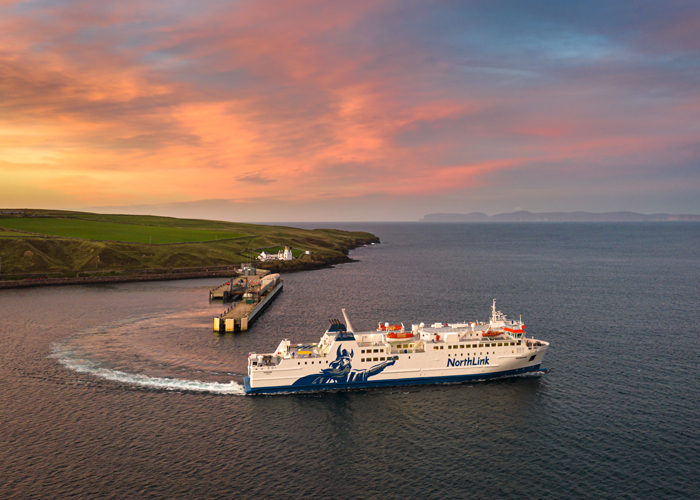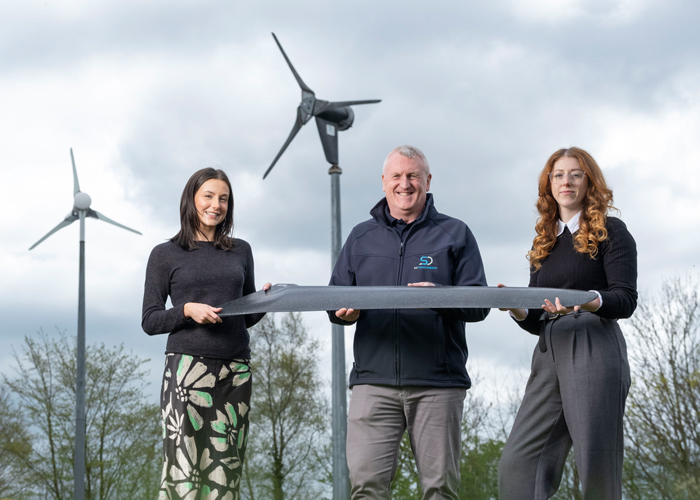For the third consecutive year Scotland has attracted a new record of Foreign Direct Investment (FDI) in 2017 and set a new ten-year high, according to EY’s latest Scotland Attractiveness Survey.
In 2017, Scotland experienced a 7% increase in the number of projects it secured, taking the total up to 116 from 108 in 2016. This rate of growth was higher than the UK as a whole at 6% and as a result Scotland’s share of UK FDI projects increased by 0.1% in 2016 to 9.6% in 2017, which is above its historical average of 9.3%.
[adbutler zone_id=’297765′]
While the UK retained its position as the number one destination for FDI in Europe, ahead of Germany and France, in general Scotland and the UK was outpaced by the rise in projects into Europe as a whole, which increased by 10%. As a result, Scotland’s market share of all European FDI projects fell back, from 1.8% in 2016 to 1.7% in 2017.
Paris was also named by foreign investors as the most attractive city to invest in, overtaking London for the first time since the survey of 450 key business decision-makers began in 2004.
Mark Harvey, EY Senior Partner, Scotland, said: “Scotland has demonstrated an outstanding ability to attract and drive sustained growth of FDI. However, the performance of the UK as a whole within Europe is a signal that competition for FDI projects is intensifying and our previous levels of attractiveness are not guaranteed to continue.
“If Scotland hopes to attract more FDI in the future we must acknowledge and address the challenges that face businesses here. For example, economic growth it positive, but sluggish, and access to labour is a recurring challenge that makes it more difficult to expand operations. Scotland must work increasingly hard, with private and public sectors in partnership, to ensure the pipeline of talent, skills and experience is strong enough to drive business and economic growth in the future.”
Scotland’s strengths
The sector attracting the greatest number of FDI projects to Scotland in 2017, as in 2016, was Business Services with 23 projects. This figure represents a 10% year-on-year increase, which contrasts to the sector’s performance across the UK as a whole, where project numbers declined by 10%.
Digital also performed well and accounted for the second largest number of projects generated by any sector in Scotland, with a substantial 56% increase in project numbers in 2017 compared with 2016.
The most noteworthy activities in 2017 were manufacturing and R&D, which both achieved significant growth in Scotland. Manufacturing generated 30 investment projects, the second highest number on record in the last decade, as a result of a 25% increase on 2016. For the second consecutive year Scotland emerged as the UK’s premier destination for R&D FDI with 22 projects representing a 70% increase from 2016 and accounting for the lion’s share (24%) of all UK R&D investments.
Scotland is also performing increasingly well in securing headquarters (HQ) projects. In both 2016 and 2017, HQ projects in Scotland were at their highest level for the past decade, at a time when the UK has recorded a declining share of HQ projects (a 25% decrease in 2017).
Mark Harvey said: “It is hugely encouraging to see the consolidation of Scotland’s position as a leader in R&D activity and the significant expansion of investment in what is a world-class Digital sector. These areas of success are underpinned by the strength of the universities producing high caliber, talented people who want to build their career in Scotland. Scotland’s long-term attractiveness to investors will rely, in part, on the ability to remain a first choice destination for students.”
EY’s UK Chief Economist, Mark Gregory, commented: “The UK’s FDI landscape is changing. The pace of growth of inward investment into London, and the UK as a whole, is slowing, impacted by the decline in Financial and Business Services projects, and the drop in the number of HQ investments into the UK – an indicator of a country’s FDI performance.
“However, Scotland and the English regions of the North West, the East and South East all had a strong FDI performance in 2017 driven in part by an increase in the number of digital projects locating there. Across the UK there is also a correlation between the growth of FDI in university cities, including Edinburgh, with a reputation for digital and R&D. In an increasingly digital world, the UK will need to accelerate and maximise its transformation into a digital economy or risk losing out on growth opportunities.”
Jobs and cities
The total number of jobs secured as a result of FDI into Scotland rose by 104% from 3,131 in 2016 to 6,374 in 2017. This is the highest number of FDI jobs created in Scotland in any year in the past decade and has been driven by a shift towards more large scale projects. In 2017, 10 projects created 200 jobs or more while there were just six projects that resulted in more than 100 jobs the year before.
The largest FDI project in Scotland in 2017 by employment was from Norway into the oil and gas sector, with the creation of 700 jobs. After that, the mix of projects was varied with Business Services accounting for three projects creating to more than 200 jobs. Edinburgh and Glasgow secured four of these large projects each.
The pulling power of Scotland’s biggest cities to attract FDI projects continues with Aberdeen, Edinburgh and Glasgow all ranking inside the UK top ten cities / towns. While Livingston makes an appearance inside the UK top 20 for the first time, which could be linked to Edinburgh City Region Deal.
Edinburgh overtook Glasgow as the highest ranked Scottish city for FDI in 2017, with 29 projects, which was a rise of 45% on 2016, jumping up the UK leaderboard from sixth in 2016 to third in 2017. In contrast, Glasgow had a less successful year than in 2016, falling to joint sixth place in the UK FDI cities ranking with a decline of 41% in projects secured. Aberdeen saw a modest fall in project numbers, but remained in joint eighth place in the UK.
Sources of Scotland’s FDI
Not only did the US maintain its position as the country responsible for the largest number of FDI projects in Scotland, it also increased the number of investments by 16% to 36 in 2017 from 31 the previous year. Also in the top five countries were, in descending order, Norway, France, Ireland and China all of which increased the number of their FDI projects in Scotland. Of particular note is the sustained increase in investment from China.
Mark Harvey said: “Scotland has done particularly well in building the momentum of investment from China by driving the number of projects from a maximum of one to five in 2016 and six in 2017. The question is whether Scotland can attract even more FDI projects from China in the future, Scotland must nurture and invest in this relationship.”
Investors’ perceptions: outlook stable in the short-term, but longer-term threats visible
EY’s report includes a survey of 450 global investors, to understand the drivers of their investment plans. The findings of the annual survey of investors’ perceptions revealed that Scotland’s FDI attractiveness is holding firm amid current uncertainties while the UK’s overall attractiveness has declined, relative to its competitors in Europe. Scotland held its position as fifth most attractive UK location for FDI behind London, the South East, West Midlands, the North West and North East with 3% of respondents stating it was the most attractive – an increase of 1% from last year.
When asked how their investment activity in the UK has changed since the EU referendum, 6% of investors said they had reduced it, 7% said they had increased it, and 8% had put their plans on hold.
In line with historic trends, albeit low, 24% of investors said they intend to establish or expand operations in the UK in the coming year, compared to 28% who cited Germany. This suggests a stable short-term outlook for the UK.
More long-term, investors appear to become increasingly concerned. 30% of those surveyed said they expect the UK’s attractiveness for FDI to improve in the coming years, whilst 36% expect it to decline – the lowest level of confidence ever seen in the nation’s future appeal.
Gregory adds: “Unsurprisingly, ‘access to the European market’ and the ‘UK’s domestic growth’ are areas of concern cited by investors given the Brexit process. But there has also been a striking decline in the UK’s qualitative appeal, which takes into account a country’s social climate, quality of life, diversity and the political environment.”
According to EY’s report, confidence in the UK as a place to invest would be improved if the Government were to articulate a long-term vision for the UK, including: how it proposes to drive the future growth of the UK economy, emphasising a pro-business environment, and outlining its approach to immigration and foreign investment to encourage people and businesses to come to the UK.
Looking to the future
Scotland’s ability to attract and drive record growth for each of the last three years is an impressive set of results, which is reinforced by positive investor sentiment. This, coupled with the geographic trend of FDI moving away from London, presents Scotland with a chance to improve its standing further.
Mark Harvey, said: “Scotland has a powerful proposition where connectivity, both infrastructure and digital, combined with access to skills and talent continue to make Scotland a leading contender for foreign direct investment into the UK. This is of increasing significance at a time when investor sentiment towards Scotland as an attractive destination remains steady, whilst appeal of the UK weakens, offering Scotland a golden opportunity to consolidate current performance and push harder to win a bigger share of UK inward investment.
“It is particularly important that Scotland exploits this opportunity during the current environment of uncertainty with Brexit nine months away.”
[yikes-mailchimp form=”2″ title=”1″ description=”1″]




